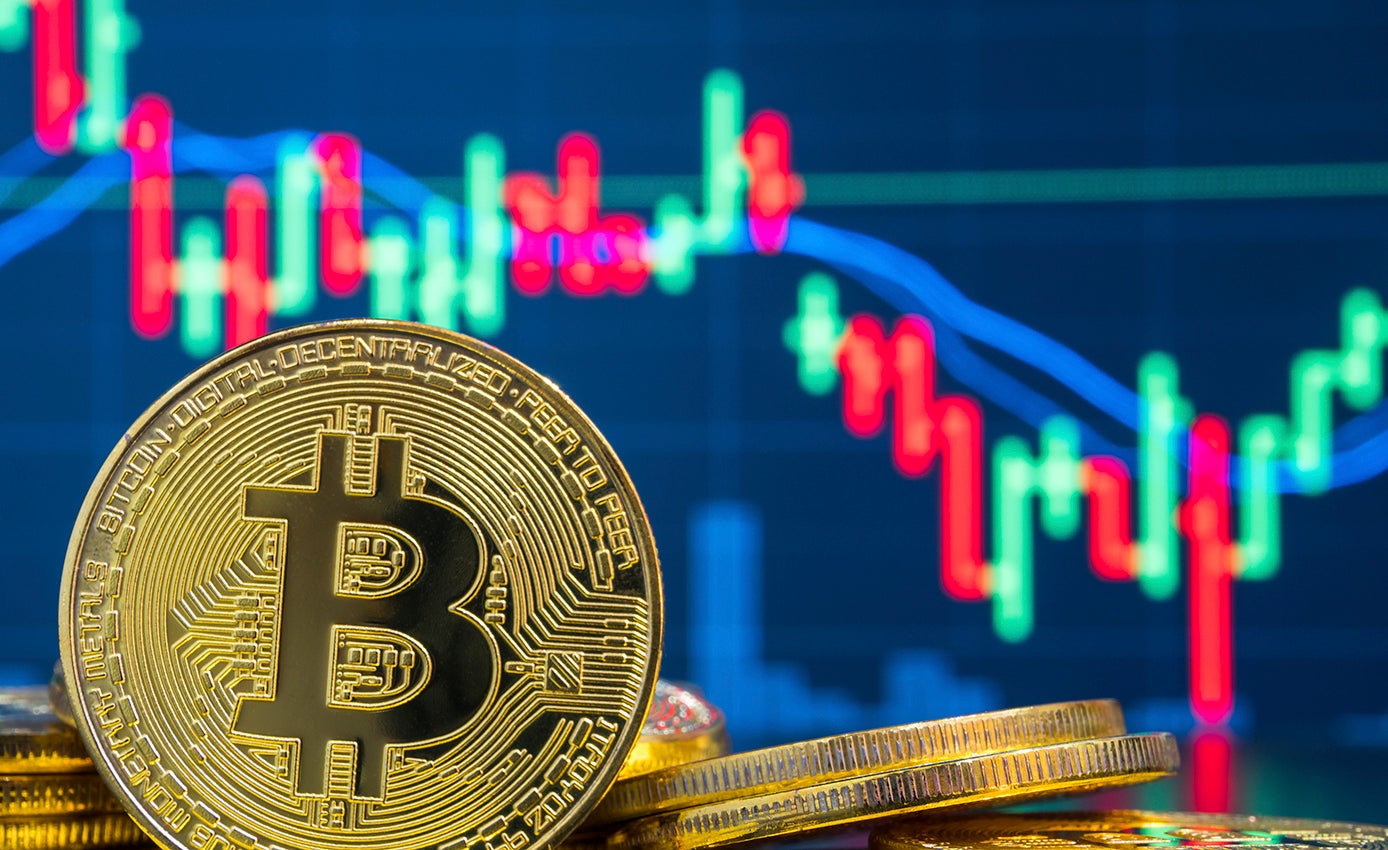
Subscribe to Pittwire Today
Get the most interesting and important stories from the University of Pittsburgh.Point of View: Three Pitt Scholars Discuss the Future of Bitcoin
To mark the 10-year anniversary of the creation of the first block in bitcoin’s famous blockchain in January, Pittwire invited three Pitt scholars to share their opinions on the technology and its future.
Bitcoin, a digital currency with no centralized administrator, has gained traction as a lasting, difficult to spoof way to transfer data that can be used for transactions around the world.
At its peak in December 2017, bitcoin traded at $18,000 per token with a market capitalization of around $305 billion. By the end of January 2018, the currency had dropped to around $10,000 per token and market cap was slashed to around $170 billion. At the start of December 2018, tokens were worth around $4,214 each and market capitalization had fallen to around $73 billion.
The basics of blockchain
Want to learn more about bitcoin and other cryptocurrencies? Check out Pitt Magazine’s interview with Chris Wilmer in the latest issue.
The sharp peaks and valleys along bitcoin’s path have led to equally divergent opinions about its future. Was the 2017 peak a sign that a global marketplace is anxious for a new medium of exchange? Did the subsequent drop in value prove bitcoin lacks the stability to become the world’s next dollar bill?
Christopher Wilmer, an assistant professor of chemical and petroleum engineering in the Swanson School of Engineering, has an optimistic view on what’s to come for bitcoin. He is the co-managing editor for Ledger, an open-access publication devoted to research on cryptocurrency and blockchain technology, and co-author of the book, “Bitcoin for the Befuddled.”
Meanwhile, Department of Mathematics Professor Gunduz Caginalp, a pioneer in quantitative behavioral finance, and his son Carey Caginalp, a mathematics department visiting scholar and researcher with Novateur Research Solutions in Virginia, argued in a Proceedings of the National Academy of Sciences (PNAS) article, “Valuation, Liquidity Price and Stability of Cryptocurrencies,” that because bitcoin lacks traditional value, share price is ultimately determined by the market’s fringe buyers.
Wilmer and Carey Caginalp said bitcoin and other cryptocurrencies gained customers due to interest in a new investment, but Caginalp said that investment was most likely part of an economic bubble.
“As with other bubbles (electronics in the 1960s or dot com in the late 1990s, for example), people are fascinated by a new technology and feel that this is somehow their path to riches. Of course, they see some people making enormous profits with these technologies and they feel that this wealth will somehow spill over to them, without considering the possibility that the wealth, in some cases, was made at the expense of people like them,” he said.
And while it’s natural to compare cryptocurrency performance and use to that of euros and yen, Wilmer said digital currencies have the potential to transcend boundaries drawn with traditional currencies.
“In a very loose analogy, religion and nationality used to be highly correlated; there were state religions. So, if you were from France or Spain, that meant your religious beliefs aligned with those of the nations. In modern society, we don’t have state religions; people are free to believe in whatever they want regardless of what country they’re in,” he explained. “In the future, it could be that currency is also separated from state and people would use whatever currency they like, regardless of the country they live in. But today, that’s a very radical idea.”
For that future to unfold, Gunduz Caginalp said buyers must rely upon blind faith in currencies that aren’t backed by physical commodities or geopolitical guarantees.
“Although the dollar is not currently backed by gold, it is different from bitcoin in several important ways. First, there is a long history of stability for the dollar. Second, there are many contracts written in the dollar. For example, many people have a job where they are assured of payment in dollars. They also have a rent or mortgage that is set in dollars. Third, the supply of dollars is effectively controlled by administrators appointed by elected officials,” he said. “As far as we know, the owners of bitcoin do not have a vote on anything, unlike shareholders. For example, we hear news bits such as: Developers and miners (engineers who create cryptocurrencies and individuals who use their computing power to produce new crypto coins) got together in New York and decided XYZ. It sounds like tribal leaders in a primitive society. They want to dress it all up as though the technology automatically bestows a higher level of corporate governance, but it is exactly the opposite.”
All three researchers agree that cryptocurrency eases the burden of transferring funds from one person to another across countries because it eliminates challenges tied to the differences between currencies. But Carey and Gunduz Caginalp hold the firm belief that bitcoin won’t be widely adopted as a currency without major changes while Wilmer said adoption is up to the broader market.
“It is possible, as we suggested in our PNAS article that one could design a cryptocurrency that is anchored to something like the gross world product, so that one unit would be worth a particular fraction of the world’s output. This could be ensured by a large private or public entity. But as it stands now, bitcoin cannot be used as a currency for major transactions,” said Carey Caginalp.
“Bitcoin is like a new language, except it’s a new currency. It could become the new global currency, but it will only become that if that’s what people want. There’s no way to force bitcoin against the will of the people. If people around the world find it more convenient to use Bitcoin than domestic currencies, then it will become the universal, global currency of humankind,” Wilmer said.



